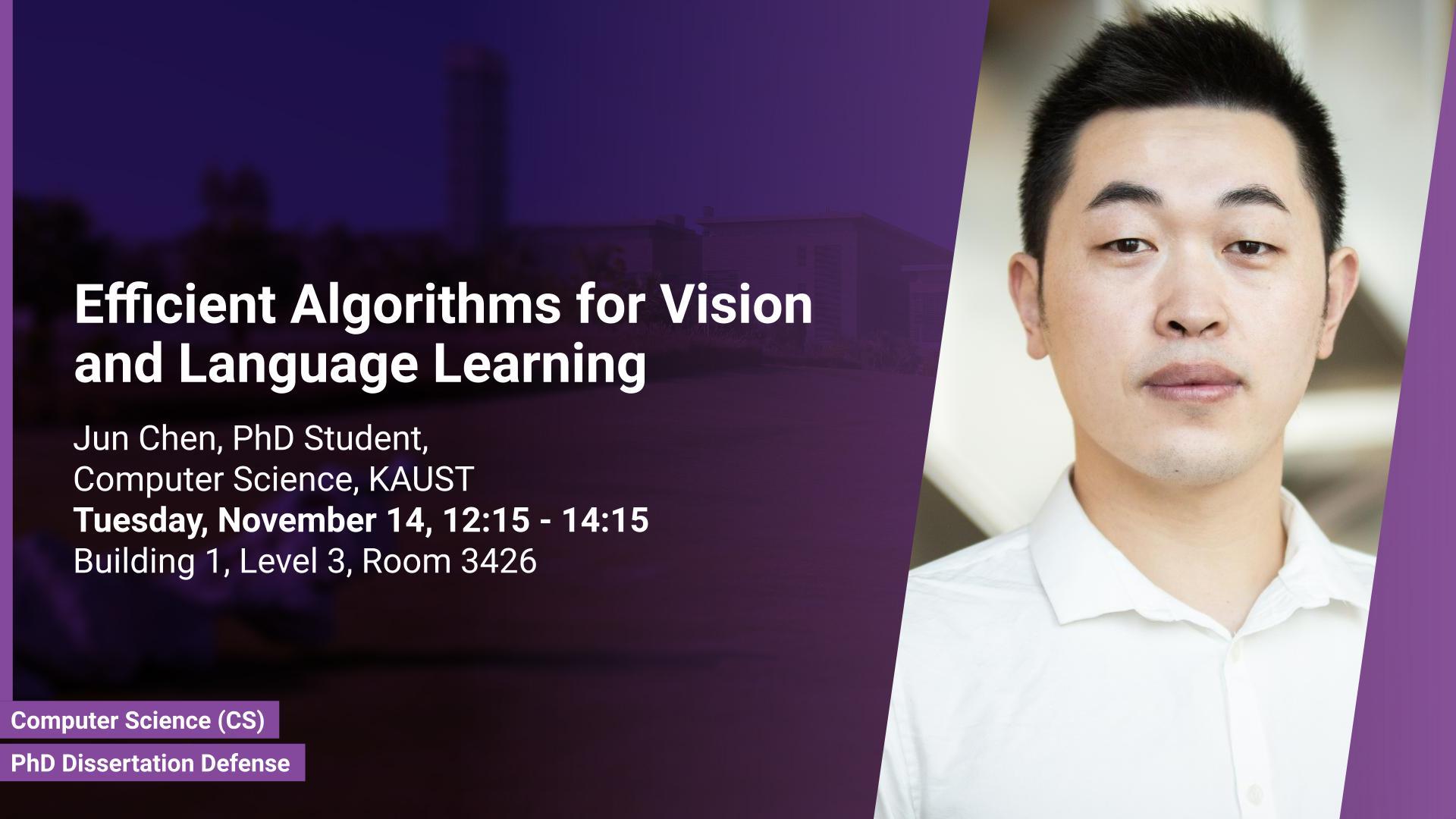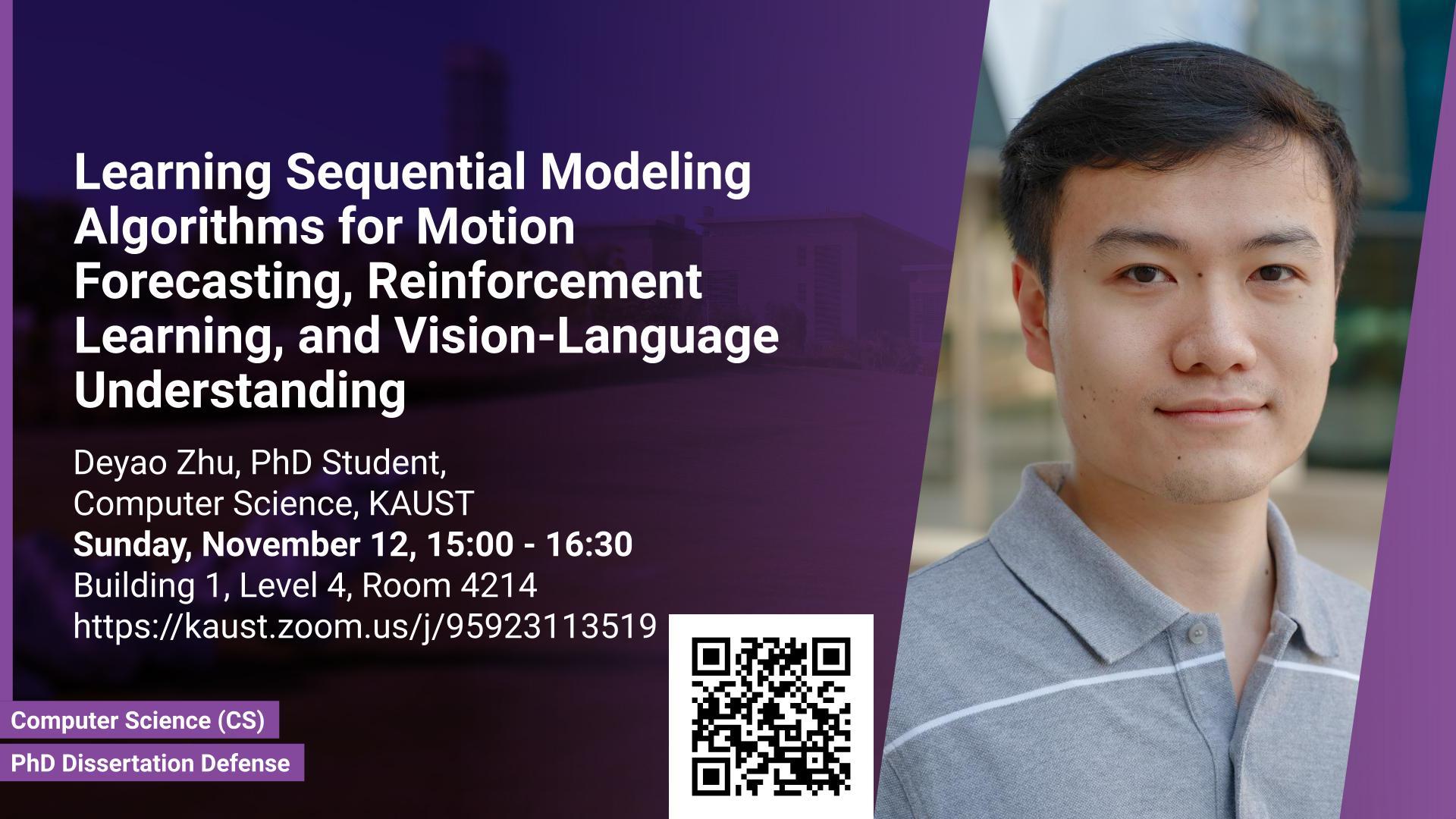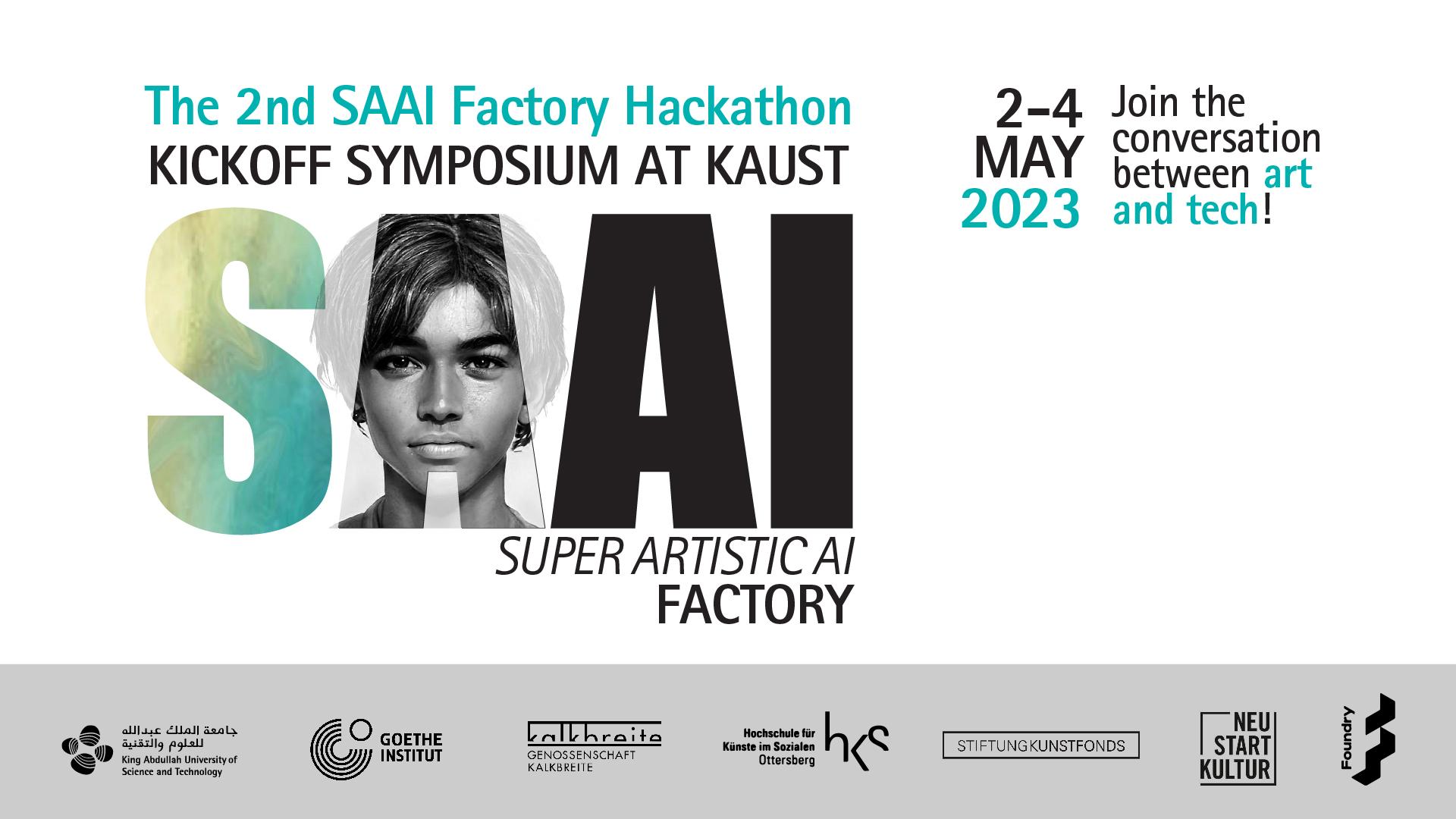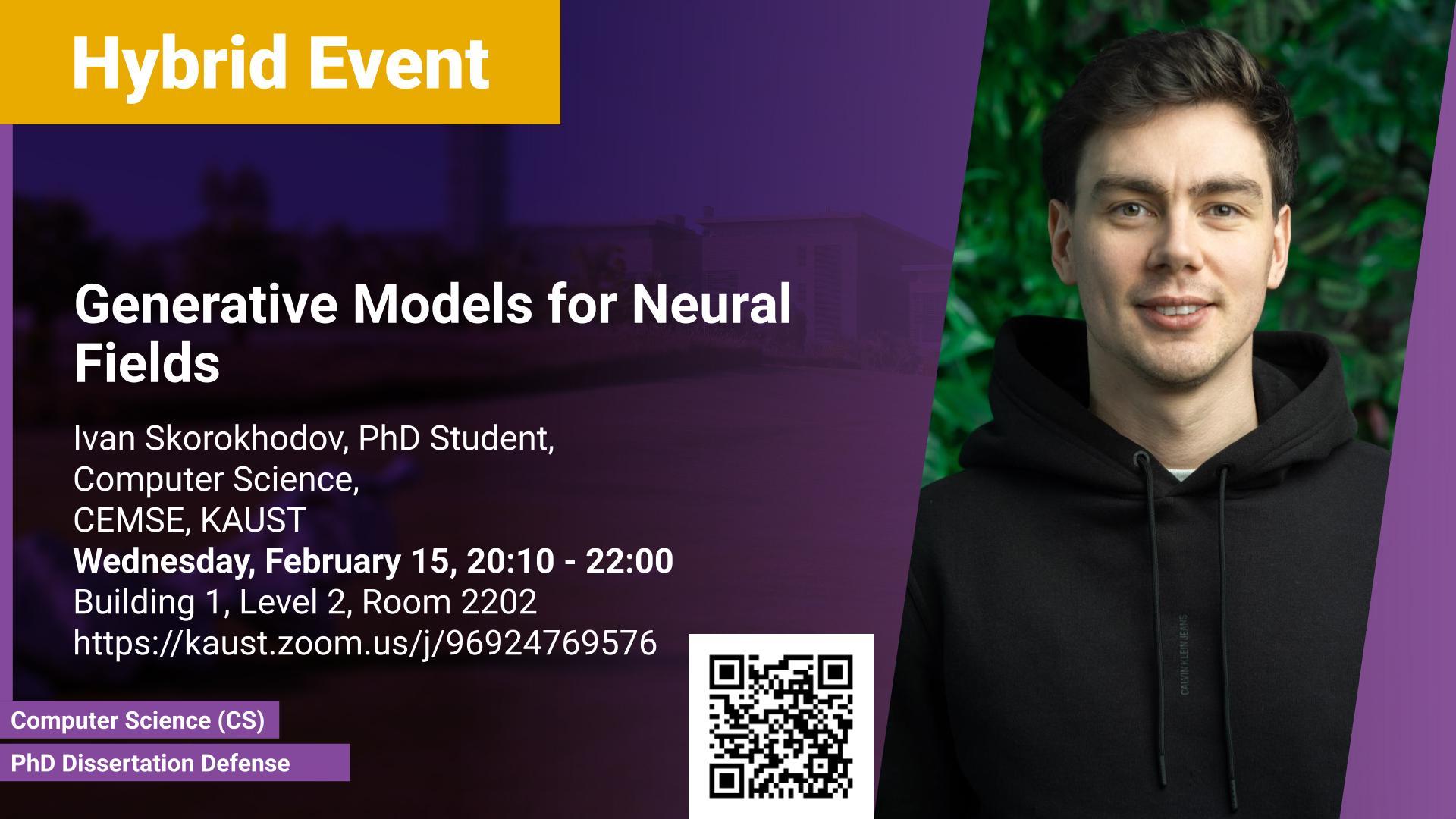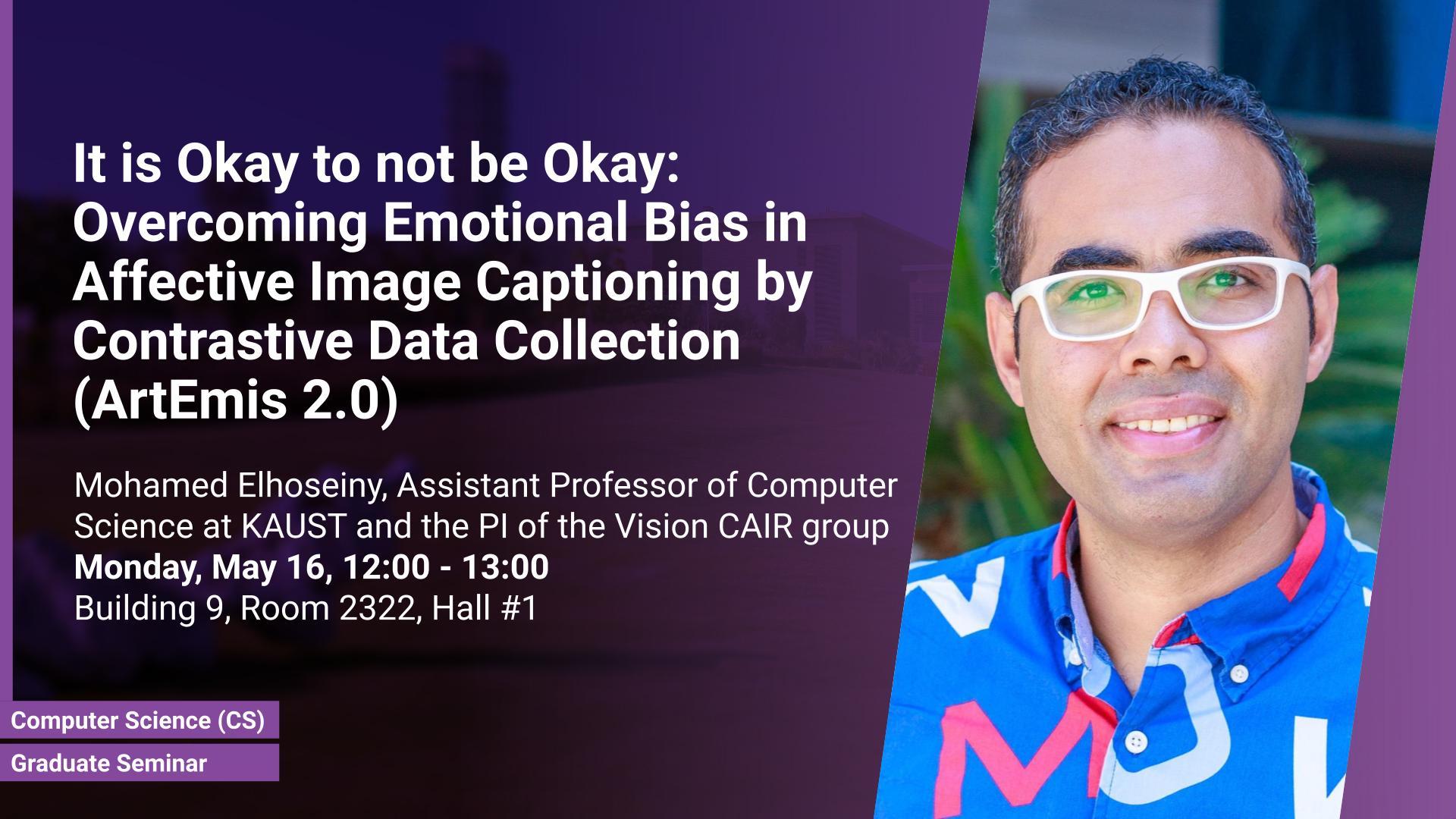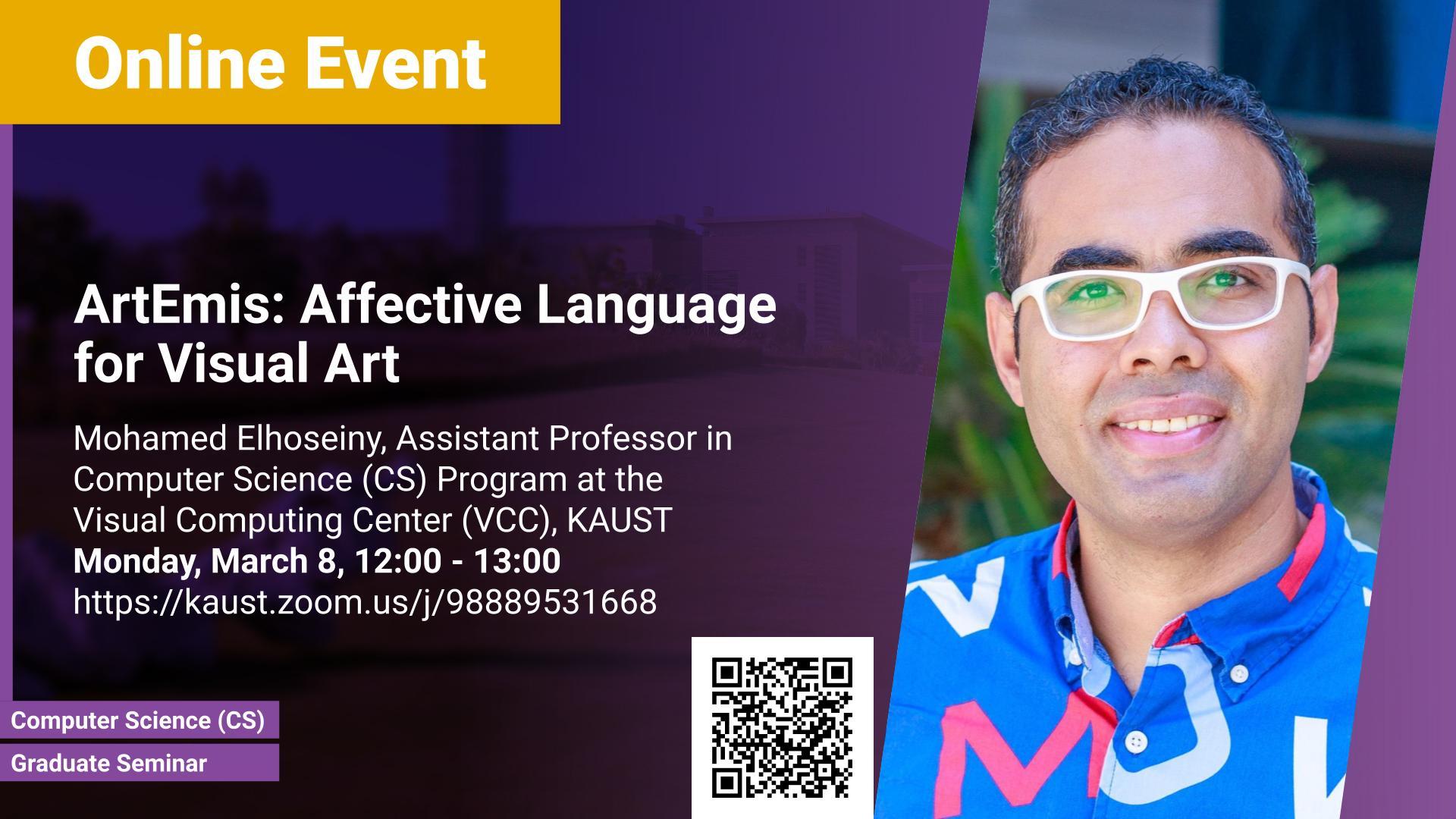PhD Student,
Computer Science
Tuesday, November 14, 2023, 12:15
- 14:15
Building 1, Level 3, Room 3426
Contact Person
The development of advanced vision-language models necessitates considerable resources, both in terms of computation and data. There is growing interest in training these models efficiently and effectively and leveraging them for various downstream tasks. This dissertation presents several contributions aimed at improving both learning and data efficiency in vision-language learning, and how to leverage them into downstream tasks.
